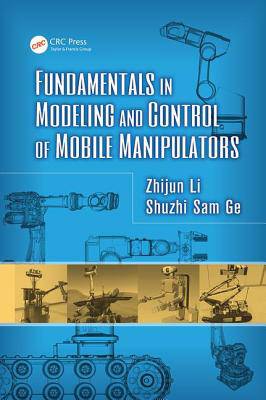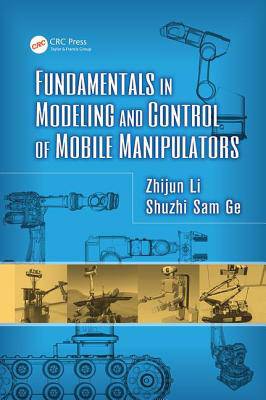
- Afhalen na 1 uur in een winkel met voorraad
- Gratis thuislevering in België vanaf € 30
- Ruim aanbod met 7 miljoen producten
- Afhalen na 1 uur in een winkel met voorraad
- Gratis thuislevering in België vanaf € 30
- Ruim aanbod met 7 miljoen producten
Omschrijving
Mobile manipulators combine the advantages of mobile platforms and robotic arms, extending their operational range and functionality to large spaces and remote, demanding, and/or dangerous environments. They also bring complexity and difficulty in dynamic modeling and control system design. However, advances in nonlinear system analysis and control system design offer powerful tools and concepts for the control of mobile manipulator systems. Fundamentals in Modeling and Control of Mobile Manipulators presents a thorough theoretical treatment of several fundamental problems for mobile robotic manipulators.
The book integrates fresh concepts and state-of-the-art results to systematically examine kinematics and dynamics, motion generation, feedback control, coordination, and cooperation. From this treatment, the authors form a basic theoretical framework for a mobile robotic manipulator that extends the theory of nonlinear control and applies to more realistic problems. Drawing on their research over the past ten years, the authors propose novel control theory concepts and techniques to tackle key problems.
Topics covered include kinematic and dynamic modeling, control of nonholonomic systems, path planning that considers motion and manipulation, hybrid motion/force control and hybrid position/force control where the mobile manipulator is required to interact with environments, and coordination and cooperation strategies for multiple mobile manipulators. The book also includes practical examples of applications in engineering systems. This timely book investigates important scientific and engineering issues for researchers and engineers working with either single or multiple mobile manipulators for larger operational space, better cooperation, and improved productivity.
Specificaties
Betrokkenen
- Auteur(s):
- Uitgeverij:
Inhoud
- Aantal bladzijden:
- 296
- Taal:
- Engels
- Reeks:
Eigenschappen
- Productcode (EAN):
- 9781138074361
- Verschijningsdatum:
- 30/03/2017
- Uitvoering:
- Paperback
- Formaat:
- Trade paperback (VS)
- Afmetingen:
- 156 mm x 234 mm
- Gewicht:
- 417 g

Alleen bij Standaard Boekhandel
Beoordelingen
We publiceren alleen reviews die voldoen aan de voorwaarden voor reviews. Bekijk onze voorwaarden voor reviews.









